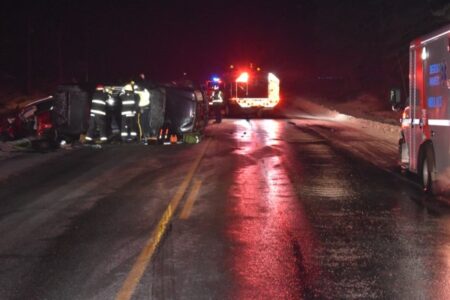COMMENT: Too big to fail
A recent headline announced that JP Morgan has reached a tentative $13-billion settlement with the US government for the role it played in creating the 2007-8 mess that left many nations, including Canada, in a prolonged state of economic dysphoria. JP Morgan was a central actor in the play that created this mess. How much is $13-billion? Using a $20 bill as the unit of measurement, $13-billion in cash would amount to 6,500 cases, each containing 1,000 bundles of 100 $20 bills. If that picture is too convoluted, imagine 520 Bob Erb lottery wins.[1]
$13-billion is not JP Morgan’s business volume; it is but one expenditure item. It is referred to as a negotiated settlement, meaning a voluntary fine. Imagine your chances at negotiating a settlement if caught parking illegally, running a stop sign, or exceeding the speed limit. JP Morgan did more than run a stop sign. If the corporation did something so horrendous as to deserve a $13-billion fine, why was it not prosecuted? Why was JP Morgan allowed to negotiate a settlement? Is it not a principle of the rule of law that an accused is either guilty and suffers the consequences, or innocent and goes free?
Whatever act JP Morgan is alleged to have committed is of such magnitude that a prosecution through the courts, including appeals, would have extended the proceedings not just over years, but potentially over generations. Prosecution was unrealistic and thus out of the question. JP Morgan had been allowed to grow to such an enormous size as to be out of the reach of any national government. This left the US government with no option but to negotiate a settlement. That is what it means to be “too big to fail” (TBTF).
A corporation of JP Morgan’s size is not too big to fail, it has already failed. The possibility of failure is capitalism’s safety valve. The threat of failure, be that by way of bankruptcy or abandonment by investors is essential to capitalism’s health. Profit provides the incentive to work harder and smarter. The risk of bankruptcy keeps management focused on carefully assessing risks relative to opportunities.
Banks play a key role in any economy, be that capitalism’s free enterprise or communism’s controlled enterprise. When a bank in a state-controlled economy fails, the nation as a whole suffers the consequences. When a bank in a capitalist economy fails, the consequences are suffered by the bank’s investors and the void is filled by more astute competitors.
When an economy allows TBTF enterprises, it creates a situation in which corporations in that exclusive club operate on capitalist principles when times are good, paying dividends to investors and bonuses to executives. When times are bad, however, and a TBTF corporation gets into trouble, communism’s principles are applied and the corporation is shielded by the state. The consequences are suffered by society as a whole. When a government provides a rescue package for such a corporation, it takes great care to speak about the government’s responsibility to consider the well-being of society as a whole as it scrambles to hatch a rescue package. Governments never speak of “taxpayers’ dollars” in reference to the funds needed for such rescue missions.
The lesson to be learned from the JP Morgan $13-billion settlement is that when a corporation reaches a size whereby failure would have catastrophic consequences for the nation and beyond, it should no longer be admired as a success. A corporation that is too big to fail is akin to a bull in a china shop; impressive in every respect but intolerable. When a corporation reaches TBTF size government needs to step in and break it up into smaller, free-standing corporations which are, once again, subject to capitalism’s elemental safety valve: the risk of failure.
[1] Bob Erb is a resident of Terrace who won $25-million from a LOTTO MAX ticket in the summer of 2013.
Andre Carrel is a retired City Administrator, journalist, author, and full-time grandpal.
























Comments